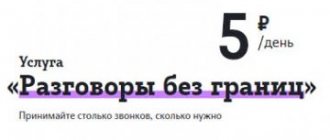What is roaming and how much did it cost?
Intranet roaming is the provision of communication services to subscribers outside their “home” region for an additional fee. National (or inter-network) roaming operates when the operator does not have its own network in the “guest” region (or area), and the subscriber automatically connects to the network of another operator with whom a corresponding agreement has been concluded.
Charging fees for national and intranet roaming (as a rule, with exceptions for neighboring regions of the Federation) has been practiced in Russia since the very beginning of the development of cellular networks. This was due to the large territory of the country and the high cost of deploying telecommunications networks.
By the mid-2010s, national roaming in Russia was free only in case of emergency situations (for example, if there was a problem with one company’s network, its subscribers could use the services of another network without additional payment). Fees for intranet roaming were charged in varying amounts by all Big Four operators (MTS, Megafon, Tele2 and VimpelCom operating under the Beeline brand). Without additional options and discounts for calls to other regions, operators charged from 5 for these services rub. (Tele2) up to 10.9 rub. (MTS) per minute. However, most subscribers used tariff packages with free incoming calls in “guest” regions.
A separate problem was roaming in Crimea and Sevastopol. The Big Four operators do not operate on the peninsula; their subscribers in Crimea use roaming from local cellular companies (Win-mobile brand), KTK-Telecom (Volna Mobile), Krymtelecom and Sevtelecom.
The essence of the amendments
Let us recall that today citizens are faced with the fact that the conditions for the provision of communication services begin to change after a citizen leaves his home region and travels, for example, to a neighboring region. The cost of outgoing calls/SMS may increase, incoming calls may become charged.
Lawmakers decided to correct this misunderstanding. The amendments directly indicate that the telecom operator must establish uniform rules for the provision of services regardless of whether the subscriber is in his home region or traveling around the country.
In fact, these amendments cancel roaming on the territory of the Russian Federation. If the subscriber is located outside the Russian Federation, then you will have to pay for the telephone connection.
Cancellation plans
The Federal Antimonopoly Service of the Russian Federation (FAS) drew attention to the problem of high roaming tariffs in 2010. In its year-end report, the department admitted that the Big Three operators (at that time Beeline, Megafon and MTS) “established and maintained monopolistic high prices for communication services in roaming” (including national). Then the department managed to reduce prices only for international roaming services.
At the end of 2012, the Ministry of Communications and Mass Media introduced amendments to the Law “On Communications” to the State Duma, which provided for the abolition of intranet and national roaming. The bill required major modifications and was not considered even in the first reading.
On June 23, 2021, after the abolition of intranet roaming in the EU, the head of the FAS, Igor Artemyev, announced that he would seek the abolition of roaming within Russia.
Tele 2
Tele2 tariff plans do not contain roaming rates. Let’s take “My Online” as an example. It includes 15 GB of mobile Internet and 500 minutes within Russia. Travel tariffs:
- Internet – according to the current tariff;
- Voice communication - from the package;
- Calls above the package - 1.5 rubles/min within the region of location, 2 rubles/min to other Russian numbers.
Detailed description of canceling roaming with Tele2.
The “Classic” tariff has one strange drawback - intercity in the connection region costs 9 rubles/min, while traveling – 5 rubles/min. Probably, the reduction in roaming prices suits the FAS more than completely.
Special conditions in Crimea:
- Incoming – 1 rub/min;
- Outgoing within the Russian Federation – 3 rubles/min;
- SMS and MMS within the Russian Federation – 3 rubles/piece.
Mobile Internet in Crimea costs 3 rubles/MB.
The case of intranet roaming
On July 17, 2021, the Federal Antimonopoly Service issued a warning to the Big Four mobile operators, requiring them to change tariffs for travel communication services within 14 days, eliminating unreasonable price differences. The FAS has established that charging additional funds for communication services when traveling within the country has no economic or technological justification. Representatives of the “Big Four” then spoke out sharply against the FAS’s claims, calling the requirements to cancel roaming 14 days in advance “impossible.” As a result of the consideration of cases, negotiations on intranet roaming were delayed. At the end of 2021, the FAS dropped claims against Tele2 after this company introduced a new line of tariffs, but on March 5, 2021, it opened cases against the remaining operators. Their consideration was completed only in the summer of 2021. On August 7, operators announced a schedule for canceling roaming. The overall process was completed in September 2021. Despite this, on December 18, 2021, the FAS imposed fines on MTS, Megafon and Beeline in the amount of 737.5 thousand rubles. for each of these operators.
MTS
The tariff plans of this operator are divided into two categories.
- The first includes tariffs that retain the tariffs for travel - these are “Tariffische”, “Smart Zabugorishche”, “Our Smart” and some others.
- The second category includes tariffs that require the activation of the options “Everywhere at home Russia”, “Home package Russia” and “Home package Russia +”. They reduce long-distance costs and make outgoing calls home free. The calculator on the operator’s website will help you figure it all out.
Traveling to Crimea with an MTS SIM card will turn out to be a benefit for subscribers - many tariff plans work here without any additional payments, at home prices.
Read more about canceling roaming with MTS.
The case of national roaming
On August 3, 2021, the FAS opened cases under paragraph 1 of part 1 of Article 10 of the Law “On Protection of Competition” against the Big Four operators, revealing the maintenance of “monopoly high prices (tariffs) for communication services in national roaming and when concluding national inter-operator roaming agreements on the territory of the Russian Federation." By the spring of 2021, MTS, Beeline and Megafon, according to the FAS, had eliminated the violations, and the cases against them were completed. Tele2, which did not have a network in 20 Russian regions, had to eliminate the comments before the beginning of autumn 2021. As a result, on September 21, 2021, the FAS reported that in the case of national roaming, all four operators were fined “about 750 thousand rubles.” for everyone."
In fact, in the fall of 2021, Russian cellular operators canceled intranet and national roaming by order of the FAS. The exception was the Crimean Peninsula.
Cancellation of roaming with other operators
Operators Danycom and Tinkoff Mobile fall into this category. They have never had and do not have roaming in Russia. They provide minutes and data packages that are valid throughout the country. This ensures their popularity - their services are used by people who do not want to overpay for communications while traveling.
Roaming has been canceled almost completely. When we forget about regional differences remains unclear. The FAS has no requirements on this issue.
5/5 — (1 vote)
Author
Vyacheslav
For several years he worked in mobile phone stores of two large operators. I understand tariffs well and see all the pitfalls. I love gadgets, especially Android ones.
Amendments to the Law “On Communications”
On July 10, 2021, the State Duma adopted in the first reading amendments to the Law “On Communications”, fixing in legislation the abolition of roaming in Russia. It was submitted to the chamber for consideration in June 2017 by deputies from A Just Russia, led by faction leader Sergei Mironov. On December 18, the document was adopted in the second reading, on December 19 - in the third. December 21 - approved by the Federation Council. Signed by Russian President Vladimir Putin on December 28.
According to the document, from June 1, 2021, national roaming will be canceled throughout the country, including Crimea and Sevastopol. As the head of the FAS, Igor Artemyev, said in April 2021, Crimean local operators will only benefit from the abolition of roaming due to an increase in the influx of customers. On May 22, Deputy Minister of Internal Policy, Information and Communications of the Republic of Crimea Vadim Pervykh said that mobile operators on the peninsula are ready to cancel roaming.
Peace to the one who enters
The flight Moscow - Simferopol is filled to capacity and there are no empty seats. This is not the first time that the Nasonovs from Surgut are flying to Crimea. They know firsthand that the peninsula has its own mobile roaming service, having learned from bitter experience.
“To be honest, in 2015, when we first flew to Crimea on vacation, it was an unpleasant surprise for us,” recalls the Siberian. “Then in a week four thousand flew off the account.” It’s not that it was a lot of money for us, but it was somehow unpleasant. So what to do?
The couple heard about the cancellation of roaming from June 1, although they did not delve into the details. “I was not particularly interested in Crimea in this regard. We booked our vacation back in March, and didn’t think about it then,” Nikolai admitted. “I know that roaming will be canceled in the regions of Russia.”
The largest mobile operator on the peninsula, (mobile operator WIN-mobile), declares that it is ready to provide communications to guests of the peninsula. “Technically, it is possible to provide communications with all Big Four operators and even with smaller companies,” said Vladimir Zaitsev, General Director of K-Telecom. — We have cooperation agreements with all major operators who have stated that they are ready to make changes to tariffs in accordance with the law. There will be no charge for incoming calls,” explained Vugar Mehdiyev, head of the antimonopoly control department of the Federal Antimonopoly Service for Crimea and Sevastopol. — The FAS believes that measures have been taken to implement the legislation, and we will monitor the situation. We believe that operators will compensate for the abolition of national roaming by more active consumption of services.”
That is, an incoming call in Crimea will be as free as in the “home” region where your SIM card is registered. Regional authorities advise guests and residents of the peninsula to immediately report interruptions in mobile communications or abuse by operators.
You can report problems with communication by calling the hotline of the head of the Republic of Crimea: 0-800-506-0001 (from landlines) - multi-line phone, toll-free.
And call 8-800-506-0001 (from mobile phones) - free multi-channel phone.
Quality: from 2 G to 4 G
In turn, Crimea promises to improve the quality of communications. For example, in the new building of the Simferopol airport, until recently there were “blind spots” where communication was lost. The complex is served by one base station, experts say, and its capacity was increased by the beginning of this season. They promise to completely solve the problem by mid-June, when a massive influx of vacationers begins in Crimea.
“Miniature base stations are being installed in the terminal building,” said the K-Telecom manager. “This will allow us to provide high-speed mobile communications, including in the LTE standard. And this will also provide an opportunity to expand the Wi-Fi network, but this will be handled by the building owner.”
By mid-July, the quality of communication on the Crimean Bridge will also change. By this time, the installation of the base station on the Tuzla Spit should be completed. The process would move faster, but interdepartmental approvals take too much time, operators complain. To install one tower, signalmen need about one and a half to two months, and the preceding routine of interdepartmental approvals can last for six months or more. However, in the coming months, communications on the bridge itself and on the Tavrida highway will become more stable.
“Crimean residents may not feel this, because the network is still working uninterruptedly there, but we will feel it when we need to provide communications to a much larger number of people during the summer peak,” says Sergei Zyryanov, Minister of Internal Policy, Information and Communications of Crimea.
The Tavrida highway under construction is currently completely covered only by 2 G communications. The construction of 3G base stations here is yet to come. New base stations will also appear on the route from Simferopol to Yalta. According to the republic's mobile operators, with the exception of new buildings, 3G coverage of the peninsula is close to 100 percent. It is not available except on the tops of the Crimean mountains and in nature reserves, where there are very few visitors, which means that installing base stations will not be profitable.
But in Simferopol, Sevastopol, Yalta, Evpatoria and Kerch, as well as in the most popular coastal villages among tourists, there is already a 4G connection.
Check connection
Tatarstan. The press service denied information that appeared in some media and social networks that their subsidiary TMT did not have time to prepare for new changes. “Your Mobile Technologies” owns the “Letay” brand, which provides cellular communication services in the Republic of Tatarstan. From June 1, the company's subscribers can receive incoming messages absolutely free.
Sevastopol. Sevastopol operator Sevmobile has officially canceled national roaming from June 1. “In accordance with legal requirements, when traveling within Russia for Sevmobile subscribers, all incoming calls will be free,” a company employee told an RG correspondent.
However, SIM card owners who were interested in the abolition of roaming were told in a call on June 1 that nothing would change for them: when traveling to other regions of the country, incoming calls remain paid, their cost depends on the tariff plan. Subscribers were offered to activate an additional service, in which incoming calls when traveling around the country would be free, its cost was six rubles per day.
RG checked this situation as well. As they explained to us, this was a mistake; the call center workers did not have complete information. The network of this operator operates only in one region - Sevastopol. Residents of the city say that they use Sevmobile mainly for mobile Internet while in their region. When traveling outside of Crimea, Sevmobile SIM cards often end up outside the network, so you have to switch to the services of other operators.
Chechnya. Vainakh Telecom JSC stated that, like other cellular operators, now the company’s subscriber, being in another region, will be able to receive calls for free. Thus, the company disabled intranet and national roaming.
“We do not have our own cellular network in other regions of Russia, only in Chechnya. When traveling to another region, our subscribers connect to the Megafon or Beeline network and use their database. But incoming calls are now free,” the operator’s company told RG.
But the reason why subscribers were not informed about the changes was not given by Vainakh Telecom JSC, citing the internal work of the company.
*This is an expanded version of the text published in the issue of “RG”
How are others?
Other countries already have a similar experience of abolishing national roaming.
Thus, the European Union abolished internal roaming in 2021. As practice shows, some operators who managed to prove that they were losing a lot of income due to the abolition of roaming received the right to charge an additional commission for additional services, while leaving prices for cellular communications at the same level.
In the US there is also no additional charge for interstate communication. But there is inter-network roaming: there are more than 70 telecom operators on the market, and this is where they “win back.”
In Canada, domestic roaming has been abolished since 2014, in India - since 2017.
There is also no national roaming in Belarus.
In China, this issue is being considered and roaming is also planned to be abolished in the future.
About roaming abroad
Russian operators pay great attention to roaming abroad and are trying to make the service more accessible. All local mobile phone companies have introduced a fixed cost per minute for all calls in European roaming.
To call home from another part of the world, Beeline subscribers will cost 69 rubles for one minute of conversation, however, when calling not in Russia, but to another country, you will have to fork out and pay twice as much. MTS calls are slightly more expensive - 59 rubles. With messages, things are a little cheaper. When sending an SMS, only 19 rubles will be deducted from the Megafon user’s balance.
Expert opinion
Julia
I know the tariffs like the back of my hand
Using Tele2 unlimited internet requires 350 rubles per day.
There is a life hack that will allow you to save quite a large amount. In many tourist countries, Wi-Fi is available almost everywhere: hotels, cafes, shopping centers. Using Wi-Fi and certain applications, for example, Viber, WhatsApp, Skype, you can call a person for free, text and send photos and videos. As a rule, no money is withdrawn for this.
Don’t forget about new operator tariffs: advice from our experts on which tariff from the Unlim line is best to choose; as well as all updates to the Zabugorishche tariff option!
Megaphone
For this operator, I will not make a division because of this news. The fact is that from July 1, Megafon is changing its intercity conditions, so there is little point in describing the current tariffs.
Here's what will happen: calls and SMS to local numbers will consume your packages of minutes and SMS, and incoming calls from other cities, including home (if you're on a trip) will be considered long-distance calls and will cost you about 5 rubles per minute. At the same time, the operator writes in the news that if you have a package for long-distance calls, incoming calls will not be charged.
Let's see how it will be in practice, but for now it’s quite vague.
Megafon has the “All Russia” option; when activated, all outgoing calls and SMS (if you do not have a package tariff) to any Russian numbers will cost 3 rubles. Subscription fee for the service is 7 rubles/day.
Who benefits from the new roaming payment scheme?
If when traveling you often make and receive calls from numbers in your region of presence, the “new roaming” will be convenient for you. For those who receive calls more often from their home region and who call there themselves, the conditions are not very favorable.
Experts are inclined to believe that there are more subscribers of the second category in Russia. A person’s social circle “travels” with him. Therefore, operators have created conditions for themselves to earn additional income.
MegaFon told altapress.ru that subscribers who travel around Russia on business trips more often call within their region of residence. And those subscribers who are in other regions during vacation more often receive calls from home.
Those subscribers who use the answering machine function need to be careful. On some tariff plans, calls when the answering machine is answered are charged as incoming.
Why increased roaming tariffs are still justified
Operators consider intranet roaming an additional service and therefore charge a separate fee for it, Forbes explains. This is due to the fact that the voice transmission service between regions has a higher cost.
In Russia, licenses for cellular communications are issued for each region separately. And the law requires that a call from one region to another be transmitted only through the network of the zone operator. That is, one that operates in several regions and has physical points of connection to the network there. In fact, it is Rostelecom.
It charges mobile operators for transmitting voice traffic. These requirements do not apply to the Internet, so it is usually provided at the home rate when traveling around the country.
How does Tele2 charge calls in roaming?
Tele2 has different tariff rules for roaming.
- Internet is charged at home region prices on all tariffs.
- A number of tariffs (the new My Tele2 line and some archived ones) have preferential conditions for calls in intranet roaming: all incoming calls are free, outgoing calls are 2 rubles per minute.
- On other tariffs, outgoing and incoming calls to all Russian numbers cost 5 rubles per minute.
- On all package tariffs of the new “My Tele2” line, outgoing calls to numbers in the region of presence are consumed from the package of minutes included in the tariff.
You can find out the exact cost of roaming calls on your tariff on your operator’s website or at its call center.
Smartphone.
CC0.
Conclusion.
Will the world of cellular communications have a “bright future” with the abolition of national roaming? There are two sides to the coin. For traveling residents of Russia, there will certainly be a huge number of advantages and amenities. For other residents, it is a matter of time, the answer to which will depend on the policies of cellular operators.
By the way, negotiations on the mutual abolition of roaming between Russia and Belarus have resumed in Russia, but at the moment there is no agreement between the parties on what this should look like and what the final goal is.











